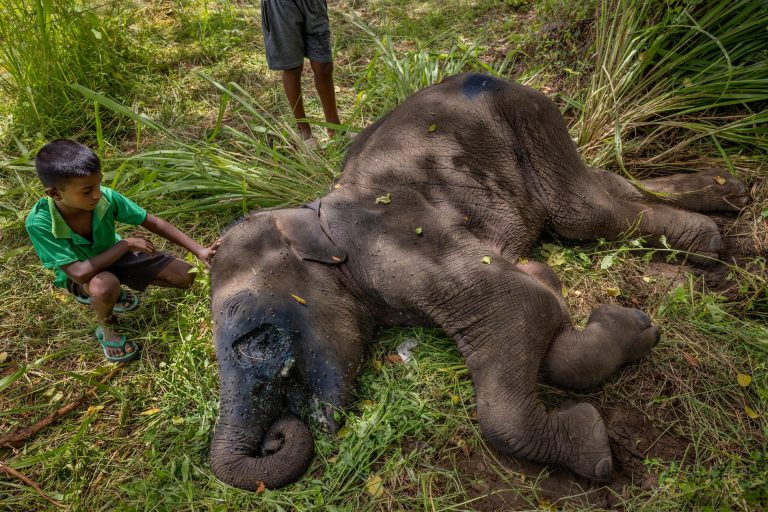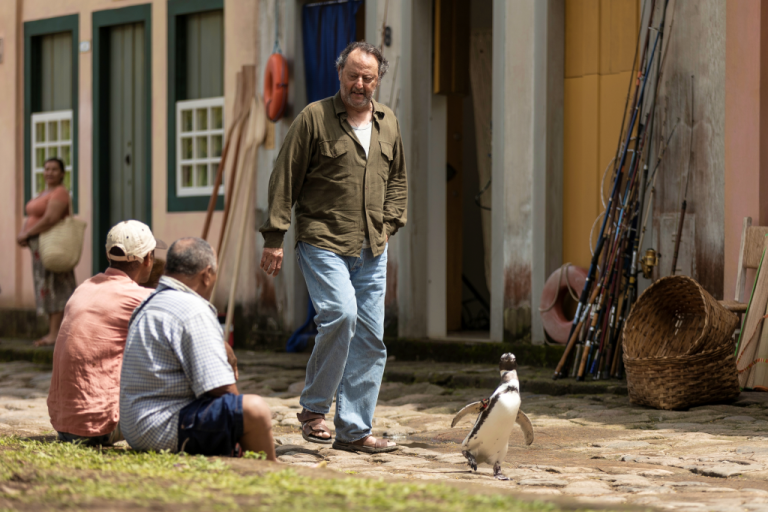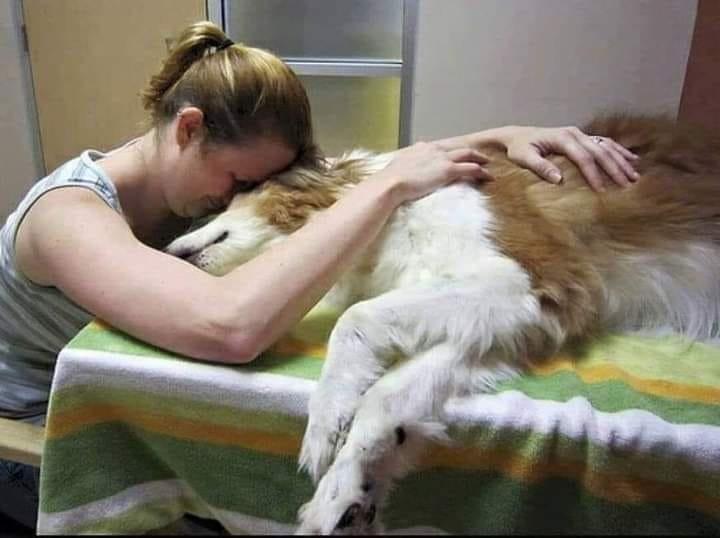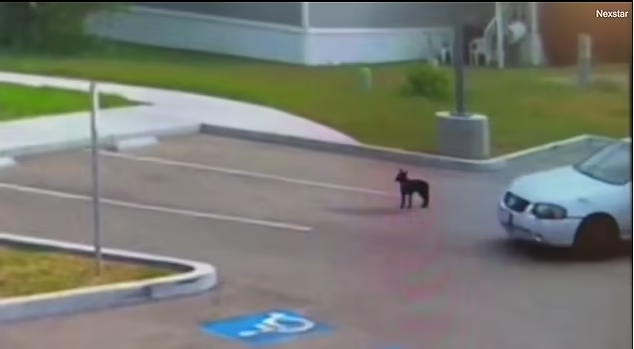No One Wanted Him Because He Was ‘Ugly’—Until a Little Girl Hugged Him
At the corner of the animal shelter, in the very last kennel, lay a dog that few people noticed—and even fewer cared about.
His name was Wally.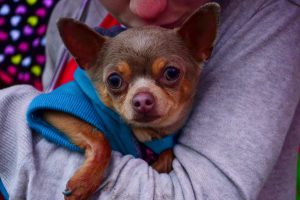
Wally wasn’t the kind of dog people drove hours to adopt. He wasn’t fluffy or photogenic. He didn’t have sparkling eyes or a shiny coat. Instead, he had scars. Lots of them. One ear drooped awkwardly while the other stood straight up. His jaw was slightly crooked, giving him a lopsided, almost comical expression. His fur was patchy, and his tail had a permanent kink at the end.
He had once been a street dog, found near a construction site—malnourished, limping, and scared of everything. Shelter workers guessed he’d been hit by a car, or worse, abused by humans. Either way, he was lucky to be alive.
But surviving was just the beginning of Wally’s story.
Over the next few months, the shelter helped him heal. They treated his injuries, fed him, bathed him, and gave him the first taste of gentle human touch. Wally, though timid, responded with slow tail wags and soft whimpers of gratitude.
Still, as adoptable dogs came and went—golden retrievers with perfect smiles, cuddly puppies with big eyes, sleek labs and playful spaniels—Wally remained.
Visitors passed by his kennel, often pausing to glance before quickly moving on. A few even muttered things like:
“Poor guy… but not the one for us.”
“He looks scary.”
“He’s too ugly for a family with kids.”
The staff did their best to advocate for him. They posted photos online, wrote heartfelt bios, and shared his progress. But every adoption day, Wally was still there.
Watching.
Waiting.
Dogs may not understand every word we say, but they understand being unwanted.
Wally started retreating more and more. He stopped wagging his tail when people approached. He sat quietly in the back of his kennel, head lowered, avoiding eye contact. Staff feared he was giving up—emotionally shutting down from the constant rejection.
And then, one rainy Saturday afternoon, everything changed.
The shelter was having a community open house event—balloons, bake sales, and discounted adoptions. Families bustled in and out, children tugging at parents to see the puppies.
Among them was a little girl named Lila, just seven years old, with pigtails and a bright yellow raincoat. She wasn’t looking for the cutest dog or the fluffiest one.
She was looking for someone who needed love the most.
As she wandered past kennels with excited barking dogs, her eyes stopped at Wally.
He wasn’t barking. He wasn’t wagging. He was curled up in the corner, his scarred face resting on his paws.
Lila crouched in front of his kennel. “Hi,” she whispered. Wally didn’t move.
She turned to her dad. “Why is he all alone?”
The volunteer nearby gave a hesitant answer: “That’s Wally. He’s had a tough life. Not many people have come to see him.”
Lila frowned. “But he looks sad. Doesn’t anyone want him?”
The volunteer hesitated. “He hasn’t had much luck… people think he looks a little different.”
Lila stood. “Well, I think he looks like he needs a hug.”
Before anyone could stop her, she slipped into the kennel with gentle determination. Her father rushed forward—but paused when he saw what happened next.
Wally slowly lifted his head, wary at first. Lila didn’t flinch. She walked closer, knelt beside him, and gently wrapped her arms around his scruffy neck.
At first, Wally stiffened.
Then something changed.
He let out a long, shaky breath—and melted into her arms. He nuzzled into her shoulder, tail twitching for the first time in weeks. A soft whimper escaped him, not of fear, but something that sounded like relief.
The shelter went silent as volunteers and visitors looked on in awe.
Lila turned to her dad, still hugging Wally.
“I want him.”
“Sweetheart,” her father said gently, “are you sure? He might need a lot of care. He’s been hurt.”
Lila nodded, tears in her eyes. “That’s why. Because no one else wanted him.”
Her father knelt beside her, looked into Wally’s eyes, and saw something he didn’t expect: hope.
They signed the paperwork that day.
Wally went home.
The first few weeks weren’t easy. Wally had nightmares. Sudden noises made him cower. He was terrified of brooms and doorways.
But Lila was patient.
Every night, she sat beside his bed and read to him from her picture books. She whispered kind words, always finishing with the same phrase:
“You’re my good boy. I love you.”
And slowly, Wally began to believe it.
His tail started wagging more. His appetite returned. He followed Lila from room to room, laying his head in her lap while she colored or watched cartoons.
He learned to play, to trust, and—most importantly—to feel safe.
Over the next year, Wally became a fixture in the neighborhood. Everyone who had once looked away now stopped to pet him. Children played fetch with him. Neighbors smiled when they saw him trotting alongside Lila on her way to school.
His scars never vanished. His jaw stayed crooked. His ear still flopped the wrong way.
But now, people said things like:
“He has so much character.”
“What a sweet face!”
“I wish I had a dog like him.”
It wasn’t that Wally had changed.
It was that one person—one small, determined little girl—had seen who he truly was before anyone else could.
Years later, Lila’s family would often tell the story of Wally.
She would smile and say, “He wasn’t ugly. He was just waiting for someone who could see his heart.”
Wally lived a long, joyful life. He remained by Lila’s side through every childhood milestone—first day of school, first heartbreak, first job. And when his time came, she was there, holding him just like she had in that kennel years ago.
His story became one of quiet legend in their town—not because he was once unwanted, but because he proved that love doesn’t require perfection.
We live in a world obsessed with appearances—flawless faces, picture-perfect lives, and filtered perfection. But the story of Wally reminds us that real beauty is found in broken things that still dare to love.
What made Wally special wasn’t the symmetry of his face or the shine of his coat.
It was his strength to survive. His heart to trust again.
And one little girl’s ability to see not what was missing, but what was waiting to be loved.
Because sometimes, all it takes is one hug to change a life.
And sometimes, that life changes yours right back.

